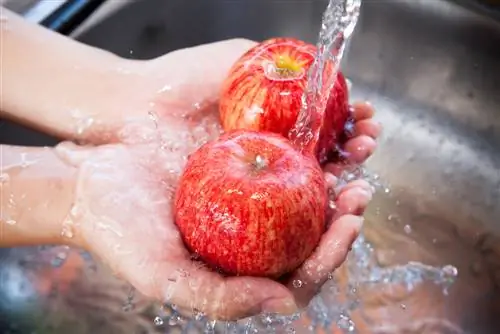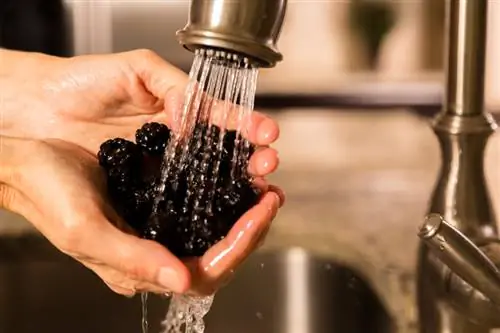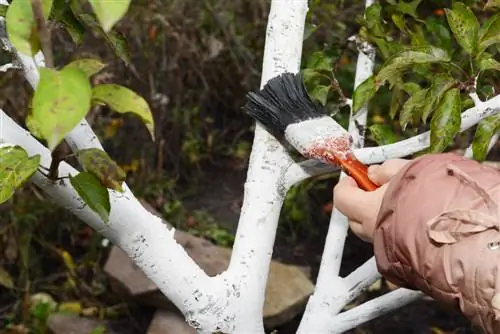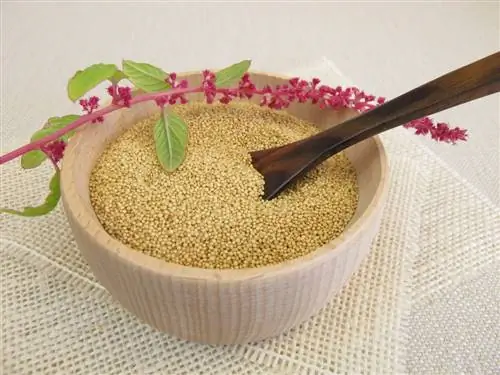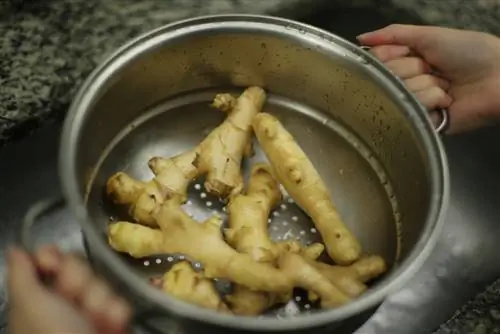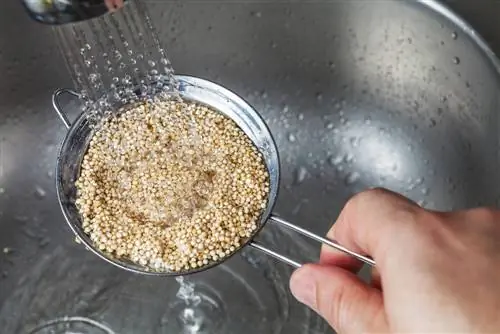- Author admin leonars@hobbygardeners.com.
- Public 2023-12-16 16:46.
- Last modified 2025-01-23 11:22.
Fruits from conventional cultivation are almost always contaminated with pesticides, which primarily adhere to the peel. In addition, there is a certain level of germ contamination, especially when fruit is sold openly and has been touched by different people. That's why it's important to wash the food thoroughly before consumption.
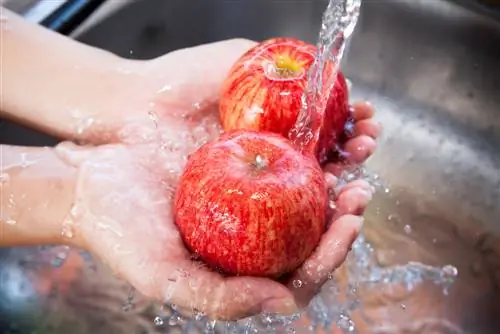
How can I wash fruit properly and remove pesticides?
To wash fruit thoroughly, first remove any coarse dirt, rinse it under running water and gently rub it clean with your fingers. If the fruit is firm, you can use a vegetable brush. To remove pesticides, place the fruit in a water and baking soda mixture for 10-15 minutes and then rinse.
Isn't peeling better than washing?
Of course, you would also remove most of the pesticides with the peel. However, most of the vitamins that you would simply throw away are located in and directly under the shell.
Another argument against peeling unwashed fruit is that you could transfer germs to the flesh with the peeling tool. That's why you should first wash the fruit carefully and then eat it with the peel on or, if you don't like it, peel the fruit.
Wash fruit thoroughly
Clean the fruit shortly before consumption and not immediately after purchase. This would destroy the natural protective layer of the fruit and the fruit would spoil more quickly.
How you wash the fruit depends on how delicate it is:
- Berries: Pour some water into the sink, add the berries and move them carefully. Remove and drain or dab in a colander.
- Peaches, nectarines and other fruits with fairly soft flesh should be rinsed under running water for half a minute. Rub it clean gently with your fingers.
- For apples and raw vegetables such as carrots, you can use a vegetable brush with bristles that are not too hard.
Baking soda removes pesticides
Plant protection products cannot always be completely removed with pure water. If you want to be absolutely sure that these are washed off, follow these steps:
- Put water in a bowl and sprinkle in some baking soda.
- Put the fruit in for 10 to 15 minutes.
- Rinse thoroughly.
This process is a little time-consuming due to the waiting time, but it can definitely make sense if, for example, small children want to eat conventionally grown fruit with the peel on.
Can you eat fruit from organic farming directly?
Although this is not treated with pesticides, you should also carefully wash fruit from your own garden and organically grown fruit. The reason: Many types of fruit grow close to the ground and come into contact with soil. Numerous microorganisms live here that can lead to illnesses and therefore must be washed off.
If you like to collect berries in the forest, dangerous parasites such as the fox tapeworm could be present. Also keep in mind that even with unsprayed fruit, you don't know how many hands it has passed through.
Tip
Buy fruit regionally and seasonally if possible, because the food needs additional treatment for transport over long distances. In addition, fruits grown in Europe are subject to stricter requirements regarding permitted pesticides and are therefore less contaminated.

